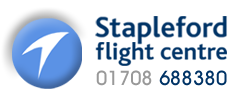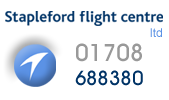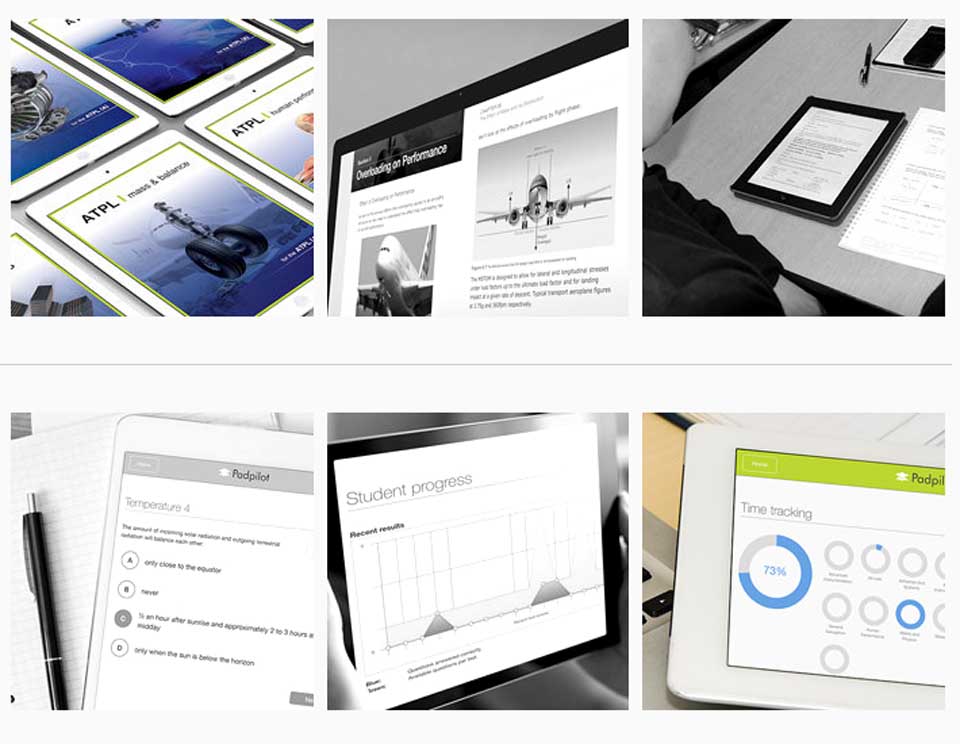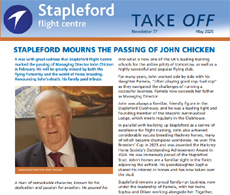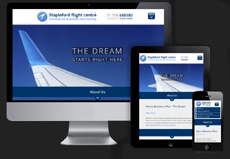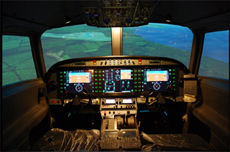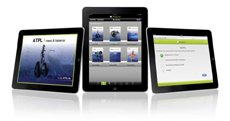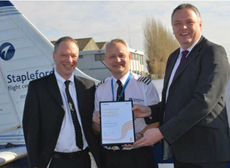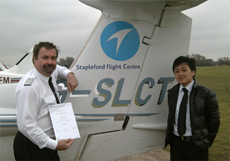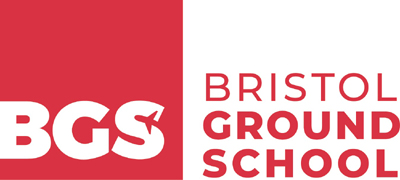Flight Training - "Zero to ATPL" - Stapleford Flight Centre
The EASA Professional Training Package
The EASA Professional Pilot Training Package provides the flight training required for a candidate with no flying experience to meet the level of proficiency necessary to operate single-pilot multi-engine aeroplanes and to obtain the frozen Airline Transport Pilot Licence (fATPL). Holders of this licence are eligible for employment as airline pilots throughout Europe and, with the appropriate airline experience, may upgrade their licence to a EASA ATPL.
Entry Requirements:
Applicants must be at least 17 years of age. They must be competent in the use of the English language, must have a sound knowledge of basic mathematics and physics, and must have passed a EASA 1st Class Medical Examination.
Below is an infographic of the modular route to your ATPL...
The Package Summary:
Training is full-time and the duration is typically somewhere between 12 and 18 months for candidates who pass their flight tests and examinations at the first attempt. This variance in the duration is to allow for holiday periods and bad weather conditions, which may cause flight postponements. On completion of the training the graduate will be issued with a EASA CPL/IR licence and have a minimum of 200 hours of credited flight experience.
Training Package Description
Private Pilot Licence Course:
Initial PPL training introduces the candidate to flight in a single engine aeroplane and starts with general handling until a good proficiency is obtained. Great care is taken to ensure that the basics of aircraft control and pilot scanning are learnt thoroughly during this stage.
The next section covers practice in the airfield circuit where the candidate becomes familiar with airfield operations and skilled in normal and maximum performance take off and landings. This part culminates in the first solo flight. The next phase focuses on cross-country flight, which includes planning, visual and radio navigation, Air Traffic Control communication, practice diversions and emergency procedures, and operations at commercial airports. This part culminates in a solo cross-country flight of 270 km between 3 different airfields.
The final section consists of preparation and rehearsal for the PPL skill test. All manoeuvres are reviewed during this phase and the candidate's proficiency is raised to the standard required for the PPL flight test. During the course the candidate prepares for and sits the PPL ground examinations.
The course satisfies the entry requirements for the EASA CPL/IR training and provides an excellent foundation for the advanced flight training. All training takes place in a Cessna 152 and comprises:
- 35 hours of dual instruction
- 10 hours of supervised solo flight
The skill test is included in the solo flight time above.
Duration:
4-6 weeks.
Course Price:
See latest Commercial Course Pricelist.
EASA ATPL Theoretical Knowledge Course
The EASA ATPL Theoretical Knowledge Course provides training to a level of theoretical knowledge required for the Air Transport Pilot's Licence for Aeroplanes (ATPL A) and prepares the candidate for the EASA ATPL Theoretical Knowledge Examinations.
Entry Requirements:
A Private Pilots Licence issued in accordance with ICAO Annex 1A. Sound knowledge of basic mathematics and physics. Be competent in the use of the English language.
The Venue:
The EASA Theoretical Knowledge Course is conducted at Stapleford in our 'State-of-the-Art' classrooms. Course materials are both iPad and paper based. For more information on these learning materials see padpilot.co.uk. The residential course lasts for 7 months and the 14 subjects are split into three phases.
Course Description:
There are 14 exams which cover the following topics:
- Principles of Flight
- Airframes/Engines/Electrics
- Performance
- General Navigation
- Radio Navigation
- Instruments/Electronics
- VFR Communications
- IFR Communications
- Air Law & ATC
- Operational Procedures
- Flight Planning & Monitoring
- Mass & Balance
- Human Performance & Limitations
- Meteorology
Flight Experience Course
Although this training is not a formal course as such, dual instruction and supervision of solo flights is needed to ensure all of the experience requirements required for the EASA CPL/IR are met within the minimum regulatory number of flying hours.
The Flight Experience Course has been designed with this in mind as well as providing the pilots with challenging flights to develop their capabilities and a good preparation for the advanced flight training. Guidance is given on flight skills and procedures by a Commercial Instructor to ensure that the pilot develops towards a CPL level of competence during the flight experience.
All training takes place in a Cessna 152 and includes the necessary entry requirements for the CPL course:
- 20 hours cross-country flight time as pilot-in-command
- A VFR 540-km/300 nautical mile cross-country flight in the course of which full-stop landings at two aerodromes other than the departure aerodrome shall be made
- Five hours night flying as pilot of aeroplanes, comprising of at least three hours dual instruction, including one hour cross-country navigation and five solo take-offs and five full-stop landings
Course Price:
See latest Commercial Course Pricelist.
Commercial Pilot Licence (CPL) Course
The EASA Commercial Pilot's Licence (CPL) Course with a EASA Instrument Rating (IR) provides the training required to meet the level of proficiency necessary to operate single-pilot multi-engine aeroplanes and to obtain the EASA CPL/IR.
Entry Requirements:
Hold a PPL (A) issued in accordance with ICAO Annex 1
- Completed 5 hours night flight time
- Completed 200 hours total flying time prior to Skills Test (100 of which must be P1)
- Completed 20 hours cross-country flight time as pilot-in-command
- The cross-country flight time must include a qualifying 540 km cross-country flight
- Hold a valid EASA first class medical certificate
- Passed a course of theoretical instruction as set out in the EASA-FCL
- The minimum age for issue of a CPL licence is 18
Course Description:
Initial training raises the proficiency of the student in general handling and flight in the airfield circuit to a commercial standard. This training is conducted in a Piper Warrior.
The next section covers IMC training during which the student will learn to fly solely by the use of instruments, to navigate using radio aids, and to an instrument pattern. This training is conducted in an ALX flight simulator and a Piper Warrior. This section of the course is not required for holders of a valid Instrument Rating.
Following this the training focuses on cross-country flight, which includes VFR and IFR en-route procedures, diversion procedures, and abnormal and emergency operations. The training is again in the Piper Warrior.
The final section consists of preparation and a formal pre-test assessment in a Piper Warrior.
The training comprises:
Option One
- 10 hours minimum of dual instruction in the Piper Warrior
- 5 hours minimum of dual instruction in the Piper Arrow
- 2 hours minimum for the skill test in the Piper Arrow.
- In addition, for students without a valid Instrument Rating, a further 10 hours IFR training is required
Option Two
- 5 hours minimum of dual instruction in the Piper Warrior
- A further 5 hours of dual instruction in an ALX flight simulator
On completion of the training and the skill test the graduate may apply for a EASA CPL licence upon attaining 200 hours total time and have a minimum of 25 hours of extra credited flight experience. If an Instrument Rating is already held, on completion of the training and the skill test, the graduate may apply for a EASA CPL/IR licence and will have a minimum of 15 hours of extra credited flight experience.
Duration:
Training is full-time or part-time, the full-time course lasting between 3 and 6 weeks dependent on weather conditions.
Course Price:
See latest Commercial Course Pricelist.
Multi Engine/Instrument Rating Course
The EASA Multi Engine / Instrument Rating Course provides the training required for a candidate with no multi engine aeroplane experience, to obtain the EASA Instrument Rating in a multi engine aeroplane. The holder may act as pilot in an aeroplane under Instrument Flight Rules (IFR) in controlled airspace.
Entry Requirements:
A Private or Commercial Pilot's Licence issued in accordance with ICAO Annex 1 with a night qualification.
- 70 hours as pilot-in-command
- 50 hours PIC cross-country flight time
- Hold a valid EASA first class medical certificate
- Passed a course of theoretical instruction as set out in the EASA-FCL
- Demonstrated use of English language as set out in the EASA-FCL
Course Description:
Initial training introduces the student to flight in a Piper Seneca and proceeds with general handling until a good proficiency is obtained. This is followed by asymmetric flight during which the student will experience the effects of a single engine failure and learn to safely control the aeroplane under this condition. The student then prepares and rehearses for the Multi Engine skill test.
The training comprises:
- 6 hours minimum of dual instruction in the Piper Seneca
- 1 hour minimum for the skill test in the Piper Seneca
Initial conversion on DA42 is aided with our DA42 BITD (Basic Instrument Training Device) which familiarises students with glass cockpit GARMIN G1000 displays.
The Instrument Rating training is commenced in the ALSIM FNPT2 flight simulator. Initially the student will learn to control the simulator smoothly and accurately by sole reference to the instruments and to accurately track and hold using VOR and NDB radio navigation aids. A high standard of performance is required before moving on to the next exercises.
The student then learns to fly precision and non-precision instrument approaches, and go-around procedures. The go-around procedures will include the practice of the drills associated with engine failure. Finally the student learns how to carry out a standard instrument departure, join the airways system, fly the airways, and make a standard instrument arrival.
The final part of the training takes place in the DA42 and the ALSIM FNPT2 flight simulator. It begins with general handling of the DA42 both in visual flight and by sole reference to the instruments. Complete routes are then flown in the DA42 where the skills learnt in the first part of the course are transferred from simulator to aircraft. The ALSIM FNPT2 flight simulator is used whenever remedial work is required and to also to extend the experience of the pilot e.g. by flight in severe weather conditions, or to more distant airfields.
The final part of the training is a formal pre-test assessment, followed by the skill test.
The training comprises:
- 35 hours minimum of dual instruction in the ALSIM FNPT2 flight simulator
- 15 hours minimum of dual instruction in the DA42
- 2 hours minimum for the skill tests in the DA42
- A further 5 hours training in the simulator is required if a CPL issued in accordance with the ICAO is not held
Duration:
Training is full-time or part-time, the full-time course lasting between 8 and 12 weeks dependent on weather conditions.
Course Price:
See latest Commercial Course Pricelist.
Get in Touch!
Interested? Excited? Motivated? Still have some unanswered questions? Then why not call us on 01708 688380, or come along to one of our regular open days to find out more? Your dream of becoming a pilot starts right here!
Tweet
Our Training Facilities
Modern Classroom Facilities
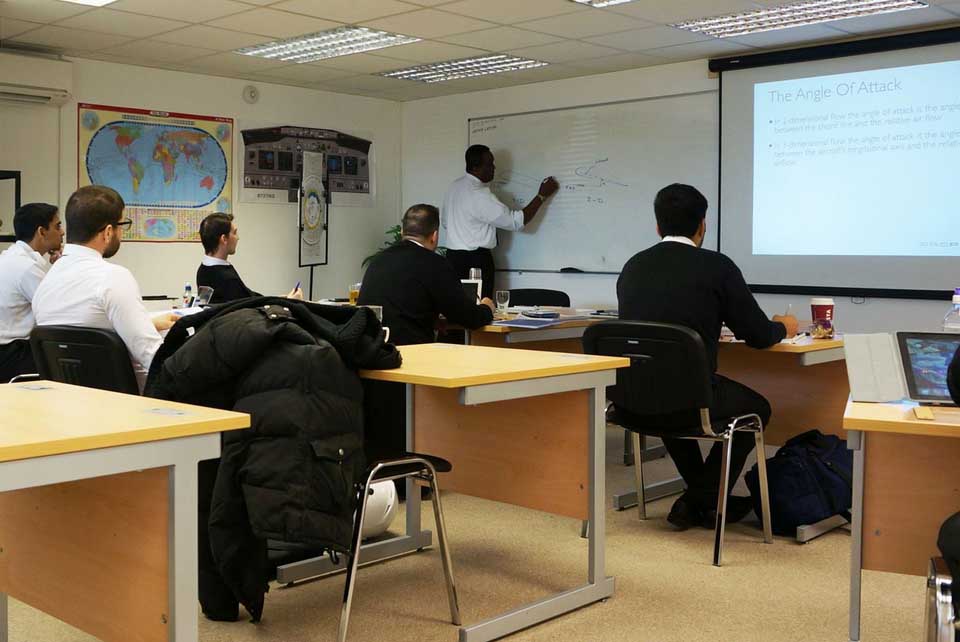
State-of-the-Art Jet & Prop Simulators
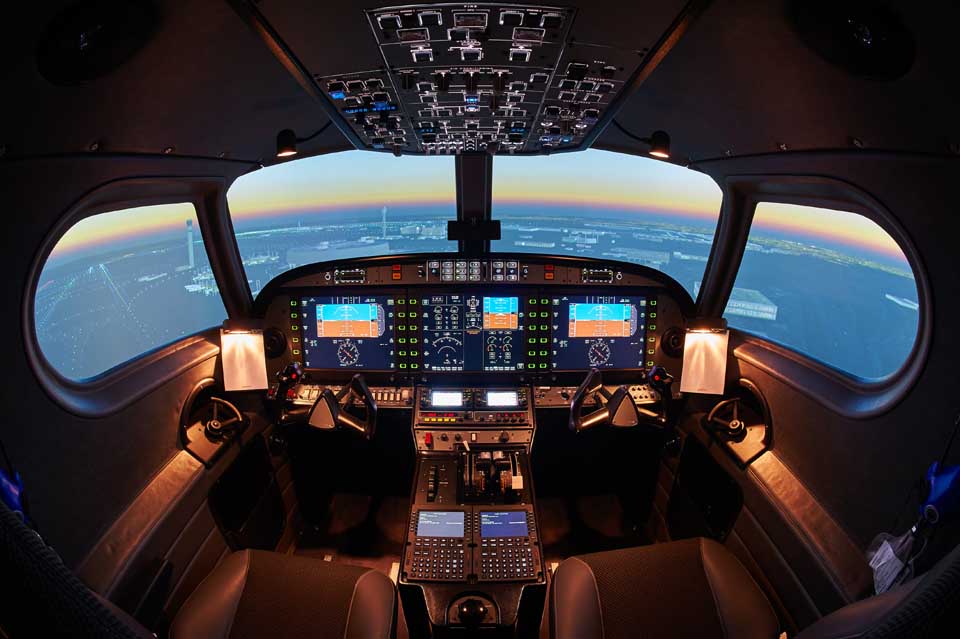
Comfortable Student Accommodation
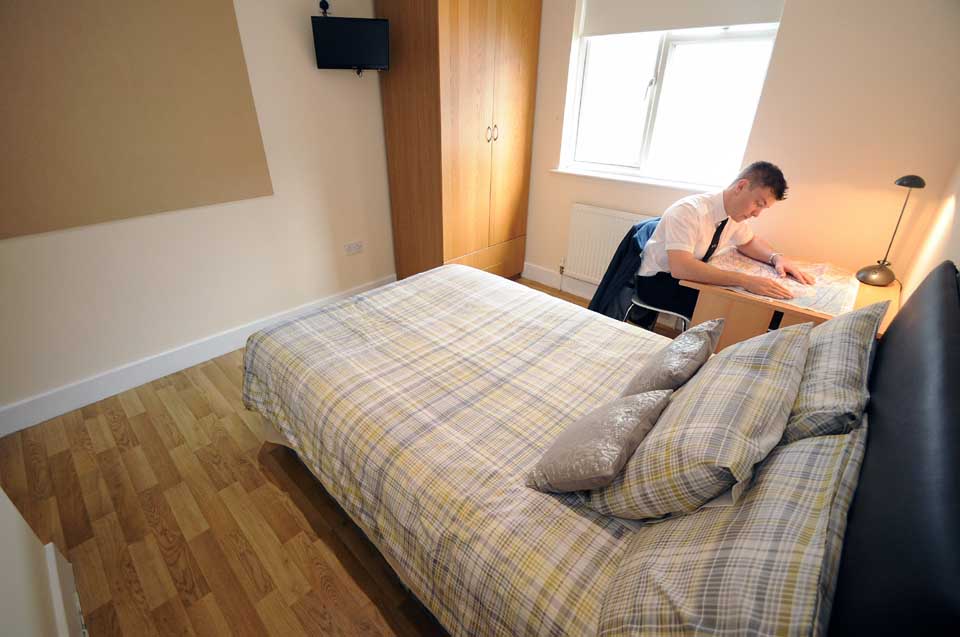
World-Class Training Aircraft
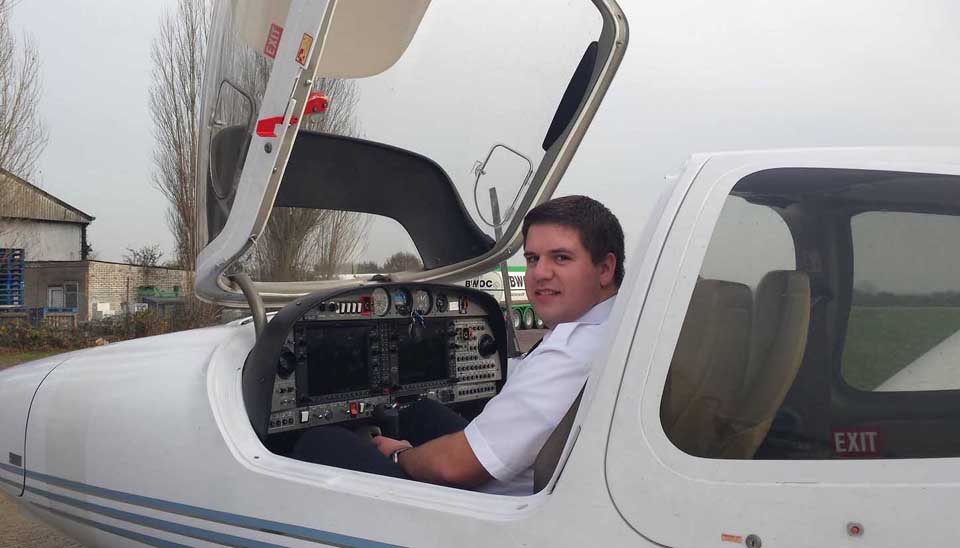
Latest News & Weather!
Latest Newsletter from SFC!
Our FREE quarterly newsletter 'Take Off' (PDF - 274kb) is now available to download (requires Acrobat Reader). It contains lots of up-to-the-minute news about the airfield and club as well as all the latest gossip. We want your contributions too. So if you have any stories, anecdotes or other ideas you wish to add to the next newsletter, or if you wish wish to order a FREE copy, please contact our editor Sue Rose - ku.oc.liamtoh@rp.esoreus or call her on 07808 587248.
Sept 2018 - Stapleford Flight Centre gets approval for Airline Pilot Standard MCC Courses
Stapleford Flight Centre are delighted to offer the new industry-standard MCC, known as the 'APS MCC' or 'Airline Pilot Standard Multi-Crew Co-operation Course'. The course syllabus is extended with ground school element increasing from three to five days with additional subjects; TEM (threat error management) CRM (crew resource management) FTL (flight time limitations) Swept wing theory Upset recovery and prevention SMS (safety management systems) ... read more here >>
2018 - Proposed RNAV approach at SFC - Consultation Process
This consultation is in relation to our proposed airspace change to allow RNAV approaches onto Runway 21L. You can download the PDF response form or add your responses online. You can also book into the 'drop -in' sessions here.
Latest Airfield Weather & Flying Status at SFC (Click to view in full window)
(Click to open in FULL separate window)
Latest Tweets from SFC!
Tweets by @flysfcSept 2015 - Stapleford Launches Integrated Pilot Training Courses!
Following hot on the heels of the Civil Aviation Authority (CAA) approval for Stapleford Flight Centre’s modular Air Transport Pilots’ Licence (ATPL) Theoretical Knowledge courses, Stapleford has now been given the go-ahead to run Integrated Pilot Training Courses at the airfield near Romford in Essex.... Download full press release >>
Aug 2015 - ATPL Theory Courses Cleared for Solo Take Off!
The Civil Aviation Authority has granted stand-alone approval for Stapleford Flight Centre to run modular Air Transport Pilots’ Licence (ATPL) Theoretical Knowledge courses at the airfield near Romford in Essex. This is the only ATPL theory course inside the M25 in the London area.. Download full press release >>
24th March 2015 - Re: Southend Controlled Airspace
When requesting a clearance into the new Southend CAS, from April 2nd 2015, it would be advisable to quote the CTA number(s) that you want clearance into. Sadly the CTA numbers are not shown on the new 1:500,000 chart and so you will find this chart useful. We strongly suggest that you carry it with you when flying locally to help you ensure you get the clearance you want. If you have any questions or concerns please contact one of the instructors at Stapleford: 01708 688380.
Latest Airline Industry News!
See:
New SFC 'Mobile Friendly' Website Launches!
Stapleford Flight Centre launches new 'mobile-friendly' website. We hope you like it - and that it displays consistently well on your desktop, laptop, tablet or mobile device (and if not, please do let us know and we'll try our very best to fix it).
SFC first with ALX medium jet simulator!
Stapleford Flight Centre, one of the UK’s top flight training schools, is leading the field with the acquisition of a brand new “state of the art” ALX Alsim medium jet simulator. This is first in the UK, and one of only five in Europe. It has just been installed at the Essex-based airfield and it will be used for MCC (Multi-Crew Co-operation) courses and JOC (Jet Orientation Courses) as well as a combined course for tomorrow’s airline pilots.
SFC Partners with ProPilot!
In conjunction with ProPilot we are introducing an enhanced ab-initio course where, in addition to the standard Zero to Frozen ATPL elements, we will train for type-rating preparation.
SFC awarded Infringement Prevention Award from NATS!
The first-ever National Air Traffic Service (NATS) Infringement Prevention Award has been awarded to Stapleford Flight Centre. This is a result of the sustained campaign led by Deputy Head of Training, Brian Peppercorn.
SFC Gains BAC Accreditation!
Stapleford Flight Centre, internationally-renowned flight training school for private and commercial pilots, has been awarded Full Accredition for its training courses by the British Accreditation Council for Independent, Further and Higher Education.
Tweet
Contact Us




